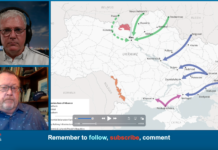 Global unemployment is more than 28million higher than 2007 levels. The largest burden is falling on youth – In Greece and Spain over 50% of youth are unemployed. Low pay is endemic throughout the developed world and is a deliberate strategy in many economies where neo liberal orthodoxy triggers a race to the bottom.
Global unemployment is more than 28million higher than 2007 levels. The largest burden is falling on youth – In Greece and Spain over 50% of youth are unemployed. Low pay is endemic throughout the developed world and is a deliberate strategy in many economies where neo liberal orthodoxy triggers a race to the bottom.
This downhill race is not for everyone, not for the privileged 1%, who benefit greedily from the policies of austerity. Creating wealth is more than extracting profits from the sales of good and services, as the recession drives down even further the capacity to shop. Wealth can be accumulated through the use of financial instruments to restructure debt and evade taxes. Austerity is the policy prescription to protect privilege. Cutting public services ensures the burden of recession falls on beneficiaries and working families and privatization opens up the economy further to investment capital. This capital is not, as the business media would have us believe, there to facilitate a productive economy which stimulates good jobs and affordable living standards. Financialisation of the economy has developed to benefit the wealthy and privileged who can add substantially to their wealth without owning the means of production. They do however keep control of the power brands which influence the carving up of the financial resources.
Two cases in point.
The food giant Kraft recently split itself into 2 companies, the North American Grocery business which kept the Kraft name and the global snacks business which has named itself Mondelez.
After buying Danone’s biscuit business and chocolate icon Cadbury with borrowed money, Kraft found itself loaded with excessive debt. Most of the debt has been migrated to Mondelez which now has an 87% debt to equity ratio. In other words the value of the assets is not much more than the debt transferred to the new company. This is very dangerous territory for workers who are already starting to feel the squeeze as Mondelez uses all methods at its disposal to reduce debt and at the same time build its brands. For workers this means the shifting of risk onto them through outsourcing, restructuring and plant closure.
Meanwhile Irene Rosenfeld received a $10m bonus after only 3 months in her role as CEO of the new company on top of her USD 22million total compensation package in 2011.
The financialised economy doesn’t care much about how the money is made. A company wants reduce debt. It will sell parts of the business. It will outsource parts of the supply chain and it will outsource workers. It will shift risk – onto suppliers of services. A financialised company is not interested in skill development or skill acquisition or building up a loyal and committed workforce. It will invest capital only if the short term returns justify the investment. The more debt incurred, the less profit when the business is sold off. The rights of workers do not figure as a priority.
The company name may change but the methods to lower costs stay the same. In Alexandria, Egypt, workers formed an independent union in the wake of the Arab Spring. But for Kraft/Mondelez, human rights stopped at the factory gates. An independent union could not be tolerated.
In July, 2012, the company refused to pass on a Government decreed wage increase and would not discuss the issue. Workers held a spontaneous protest and 5 union leaders were dismissed; two of whom were not even at work at the time.
The previous year a worker was called back on his day off to work a machine alone, a machine which normally has three people operating it. In a workplace accident the young contract worker lost his thumb. After a delay of half an hour he was taken to hospital where the company paid for an operation. He was promised he would be made a permanent worker. But when the young man recovered and returned to work he was put on permanent unpaid leave and is still without a job 18 months later. He is unable to find other work in a labour market which favours workers with all their digits.
Last year in the midst of difficult collective bargaining in Tunisia, Kraft, now Mondelez, sacked the plant general secretary and his deputy in an effort to force the workers into submission.
The International Union of Food Workers (IUF) is campaigning to have Mondelez reinstate these workers in both Egypt and Tunisia, to respect universal human rights wherever they operate, and to engage with the IUF as a representative of the vast majority of unionized workers employed by Mondelez.
The second case is that of Coca Cola- the iconic American company – which has a large number of unionized workers around the world and which does enter into regular and productive dialogue with the IUF.
However, nothing excuses Coca Cola Hellenic, Greece’s largest listed company, deserting Greece this year for Switzerland to reduce tax liability, and for the London Stock exchange to improve access to debt and equity markets. It has done this in Greece’s time of greatest need having long complained about the level of Greek taxes.
What global companies do understand is risk. That is why they develop comprehensive strategies to shift risk – onto workers, third party producers and contractors. Reputational risk around food safety and health and safety is real and can have severe consequences for profitability. Human rights (including workers’ rights) violations are also a potential risk to reputation and profits. Hence the new industry in corporate social responsibility (CSR), a PR stunt which is no substitute for strong and independent unions.
A company’s reputational risk is a powerful point of leverage for unions in fighting for workers’ rights but it is only a part of the work that needs to be done.
We require much stronger employment legislation to protect workers and stronger financial regulation to get our share. But these policy changes won’t come by simply wishing for them. Developing new and wider forms of collective organisation so that workers and their families have greater power is the great task at hand. I will offer some thoughts on this in my next blog.
James Ritchie is the International Officer with the International Union Food Workers (IUF) based in Geneva, Switzerland
[poll id=”13″]






You are hitting the nail right on the head here Mr Ritchie, thank you.
Money has become our master, when it was only ever supposed to be our servant.
I see I am going to enjoy this new Blogspot.
Thanks to all of you bloggers for becoming involved.
Good article James.
I won’t be buying Vegemite ever again.
The amount of money that people like Irene Rosenfeld ‘earn’ for ruining lives is just obscene, our world is very sick.
Just in case Ritchie’s article didn’t convince you:
http://healthland.time.com/2012/03/15/greg-smiths-resignation-are-wall-street-traders-psychopathic/
Greg Smith is all the more credible, given he’s lived and breathed the whole system.
Comments are closed.